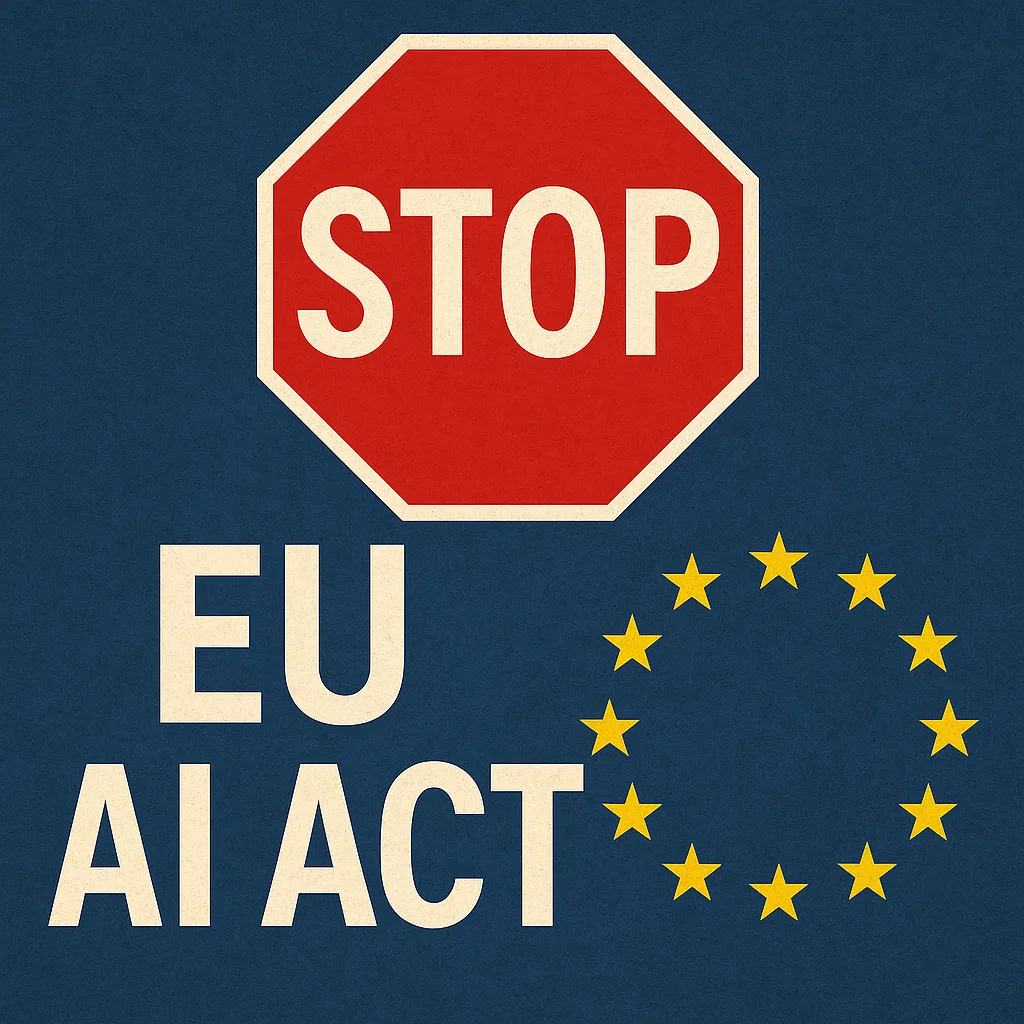EU Commission Rejects «Stop the Clock» open letter appeal: AI Act Proceeds as Planned.
Breaking from Friday, July 4: The clock is ticking, but it won’t stop.
Over 50 European business leaders, including CEOs from Airbus, ASML, Mistral AI, Mercedes-Benz, and Siemens Energy, have signed a powerful “Stop the Clock - Open Letter” urging the European Commission to pause the next implementation phase of the EU AI Act, scheduled for August 2, 2025.
Their key concerns:
- Unclear and overlapping regulations create uncertainty
- Missing critical implementation guidelines (the GPAI Code of Practice)
- Risk of hindering European AI competitiveness vs. the US and Asian markets
- A 2-year pause is needed to allow for proper simplification and preparation.
Brussels delivers a decisive “No.”
Last Friday, July 4, the European Commission definitively rejected these calls through spokesperson Thomas Regnier: “There is no stopping the clock. There is no grace period. There is no pause.” The Commission has confirmed that obligations for general-purpose AI models will proceed as legally mandated in August 2025, with high-risk AI system rules following in August 2026.
The outcome: This decisive rejection marks a clear victory for regulatory certainty over industry lobbying. While the EU has pioneered comprehensive AI regulation, business leaders’ warnings about rushed implementation without clear guidelines have been overruled in favor of maintaining legal deadlines.
What this means: Europe has chosen to prioritize regulatory timelines over industry concerns, setting a precedent for how the EU will handle future debates on tech regulation.
The Commission’s firm stance demonstrates Brussels’ commitment to its legislative calendar despite significant industry pushback. This decision will likely shape how companies prepare for AI compliance and how other jurisdictions approach similar regulatory challenges.
What’s your take? Should the EU prioritize regulatory timelines or industry readiness?
Sources:
- Reuters: https://is.gd/7NrGkT
- EU AI Champions Initiative: https://is.gd/ssVJd7
- Thomas Regnier (Spokesperson for Tech Sovereignty, Defence, Space, Research and Innovation): https://is.gd/o1TAmP
#AIAct #EuropeanUnion #ArtificialIntelligence #Regulation #Innovation #TechP
